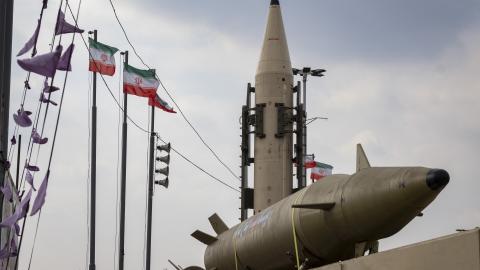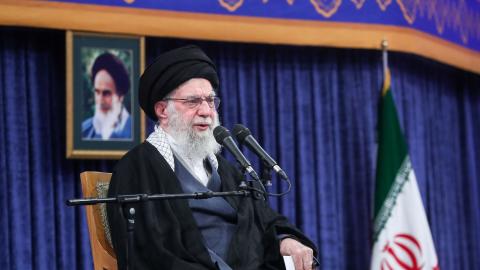Assem Abdel Maged, a leader of the Egyptian extremist group Gamaa Islamiya, has issued a statement in Egyptian newspapers today, September 1, asserting that three of the group's members, or, as he described them, "martyrs," had been killed while helping the rebel forces in Syria. Abdel Maged helped found the group in the late 70s and remains one of its most important leaders as a member of its policy-making Shura Council.
According to Abdel Maged: The three martyrs were among the members of the group who had traveled to Syria to participate in relief work and fighting with the Syrian people and defend the cities and innocent citizens from the suppression of the regime and the acts of killing and extermination practiced against their brothers.
Gamaa Islamiya, which is on the U.S. State Department terror list, is of course not new to violence. Its spiritual leader is the "Blind Sheikh," Omar Abdel Rahman, who was convicted of the first World Trade Center bombing in 1993 and now serving a life sentence in a federal penitentiary in North Carolina. The group was also found responsible for numerous attacks in Egypt on Christians, police, and tourists in the 80s and 90s, the most well-known being the Luxor Temple massacre of 58 foreign tourists.
The dire implications of this news should not be overlooked. In the past, the return of jihadists fighting oversees whether from Afghanistan, Chechnya, or Albania has resulted in the bloody application of the newly acquired battle skills in the streets of Egyptian cities. The prospect of a new generation of trained Egyptian jihadists is real and it is terrifying.
Second, Gamaa Islamiya apparently has now openly abandoned its twenty-year posture of having renounced violence and feels emboldened enough in the current environment to shed all pretense of restraining itself to civil action. After the Egyptian revolution, it formed a political party, the Building and Development Party, which won 13 seats in the now dissolved Egyptian parliament. One of those parliamentarians, Hani Nour el Din, was recently granted a U.S. visa and was welcomed into the White House and State Department where he lobbied Obama administration officials for the release of the Blind Sheikh. This is part of the lobbying effort that Egyptian president Mohammed Morsi has also vowed to take up, an indication of the group's growing influence within both the Egyptian and American governments. The question is, will Gamaa Islamiya be content to press its free-the-Blind-Sheikh campaign or any other cause through peaceful diplomatic means?
A curious detail at the end of the news report is worth mentioning: According to the newspaper Al Watan, Sheikh Abdel Aziz el Gamal, described as the commander of the "Taliban Army," together with a number of the leaders of the "Jihad in Egypt," are currently preparing a battalion of Egyptian jihadists to go to Syria to fight the Assad regime.
The reemergence of el Gamal is all by itself a disturbing development. El Gamal was an officer in the Egyptian army in the late 70s and was imprisoned for three years after the assassination of Sadat. In 1988 he traveled to Afghanistan where he took part in the jihad against the Soviets. He received a death sentence in absentia from an Egyptian court in 1998 due to his involvement in a terrorist cell referred to as "The Returnees from Albania." He was handed over by Yemen in 1999 and had remained in Egyptian prisons for 13 years as one of the country's most high-profile terrorists. Last March, his sentence was commuted, el Gamal was set free, and he disappeared from the public eye. Now he is back and leading a new generation of jihadists, this time heading to Syria.


















